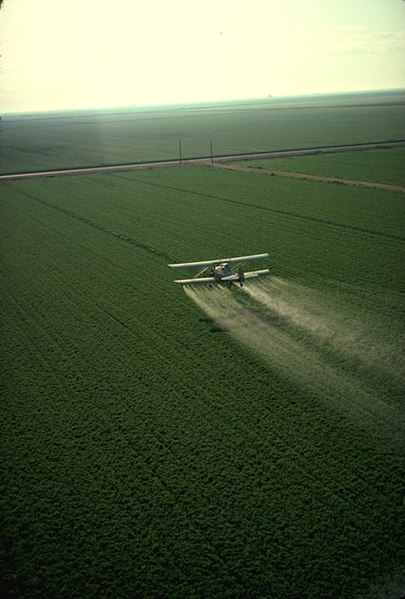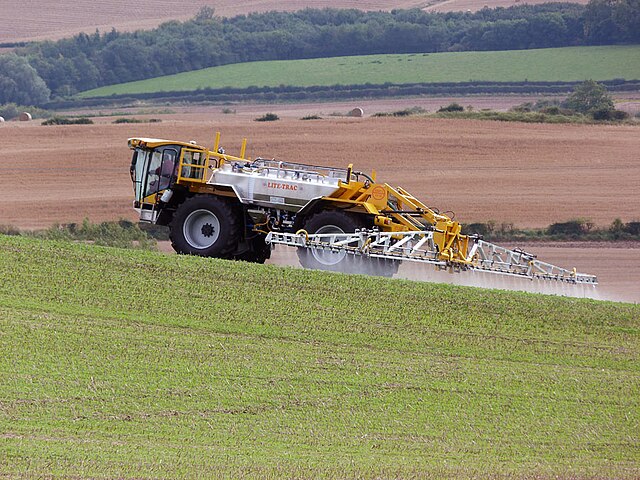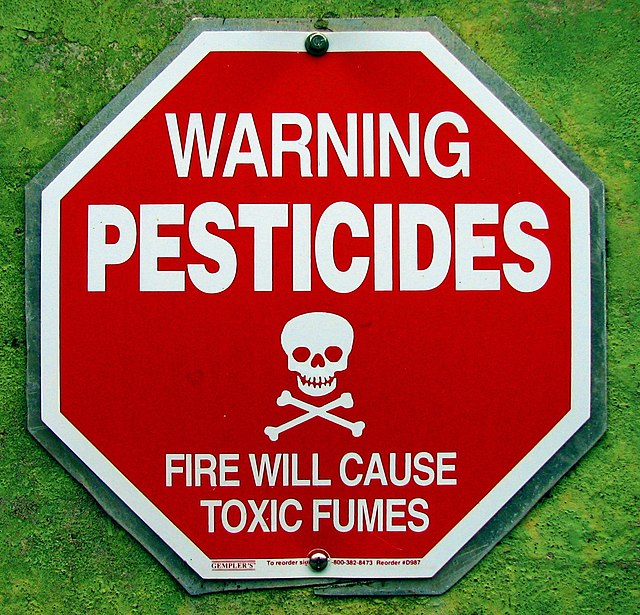Corporate farming is the practice of large-scale agriculture on farms owned or greatly influenced by large companies. This includes corporate ownership of farms and selling of agricultural products, as well as the roles of these companies in influencing agricultural education, research, and public policy through funding initiatives and lobbying efforts.
The US poultry industry is often used as an example of corporate farming due to the influence of large integrators like Tyson Foods and Perdue Farms
The Nunley Brothers Ranch in Sabinal, Texas has been family owned and operated for over 70 years. The ranch is also among the largest private landowners in the US.
Cargill beef processing plant in Australia.
Pesticides are substances that are used to control pests. They include herbicides, insecticides, nematicides, fungicides, and many others. The most common of these are herbicides, which account for approximately 50% of all pesticide use globally. Most pesticides are used as plant protection products, which in general protect plants from weeds, fungi, or insects. In general, a pesticide is a chemical or biological agent that deters, incapacitates, kills, or otherwise discourages pests. Target pests can include insects, plant pathogens, weeds, molluscs, birds, mammals, fish, nematodes (roundworms), and microbes that destroy property, cause nuisance, or spread disease, or are disease vectors. Along with these benefits, pesticides also have drawbacks, such as potential toxicity to humans and other species.
A crop-duster spraying pesticide on a field
A self-propelled crop sprayer spraying pesticide on a field
A sign warning about potential pesticide exposure
Preparation for an application of hazardous herbicide in the US







